Frank Gibson Sr
If anyone deserves the saying “Give the drummer some” it was Frank Gibson Sr. He was surely the most influential drummer in Auckland after the Second World War.
In the 1940s he played for the city’s top big bands; in 1956 he formed the country’s first professional rock and roll band; and in 1978 he opened the specialist instrument store Drum City in Balmoral, which quickly became a Mecca for anyone intent on keeping the beat. Another epithet he deserves is “the hardest working man in show-business” – in 1946, for example, he played 253 nights of the year, while also keeping his day job at the Post Office.
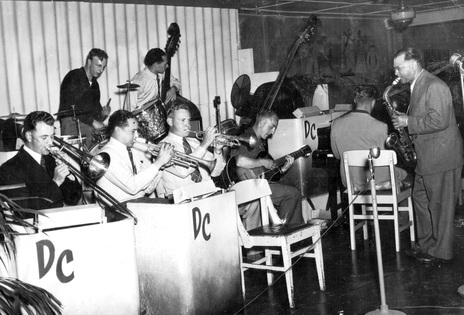
At the Peter Pan, later Mainstreet, Queen Street, Auckland
Photo credit:
Frank Gibson Jr. Collection
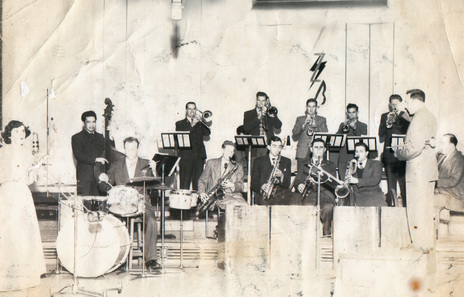
Esme Stephens with the 1ZB Radio Band in the early 1950s, led on this occasion by Bob Leach - a treasured item from the Frank Gibson Sr collection
Photo credit:
Courtesy of Frank Gibson Jr.
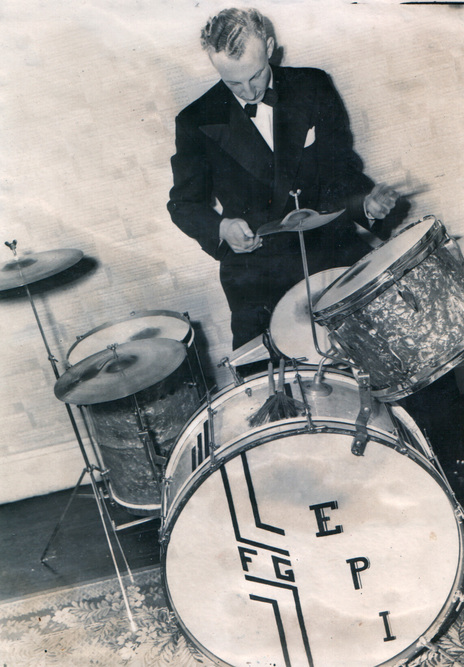
Frank Gibson Sr. The Epi stands for the Epi Shalfoon Band
Photo credit:
Frank Gibson Jr. Collection
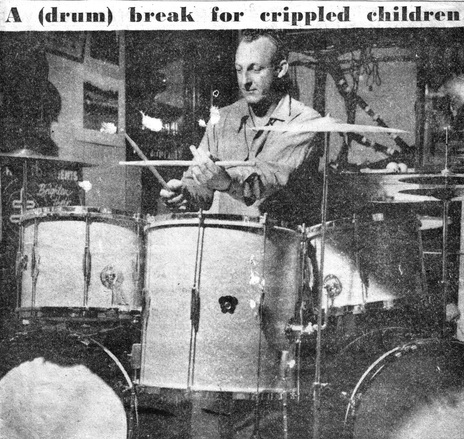
Frank tries out his new set of twin-bass drums – the first in NZ – to be used at a charity concert for the Crippled Children's Fund at His Majesty's in Auckland. Auckland Star, 17 December, 1954.
Photo credit:
Frank Gibson Jr. Collection
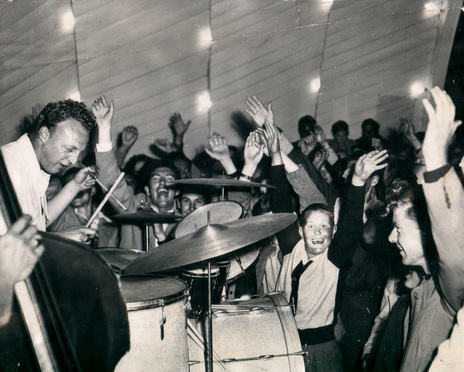
Frank playing in New Zealand's first Rock and Roll band, 1956. Note the reversed sticks for extra volume. Taken in Whangarei.
Photo credit:
Frank Gibson Jr. Collection
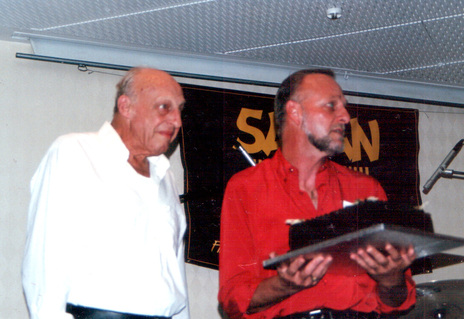
Frank Gibson Sr. with Frank Jr., 1998
Photo credit:
Frank Gibson Jr. Collection
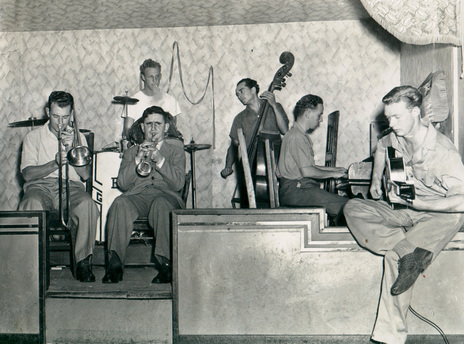
Sunday jam session, Epi Shalfoon band, early 1950s: Jack Clague (trombone), Julian Lee (trumpet), Frank Gibson (drums), Bob Ewing (bass), Allen Posley (piano), Ray Gunter (guitar)
Photo credit:
Frank Gibson Jr. Collection
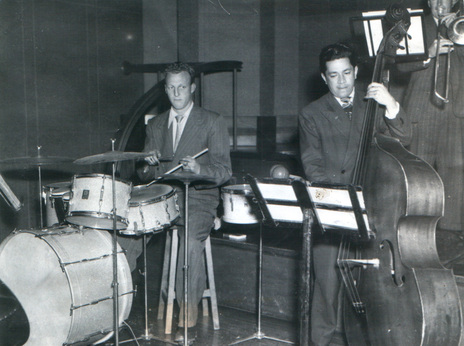
Frank with George Campbell
Photo credit:
Frank Gibson Jr. Collection
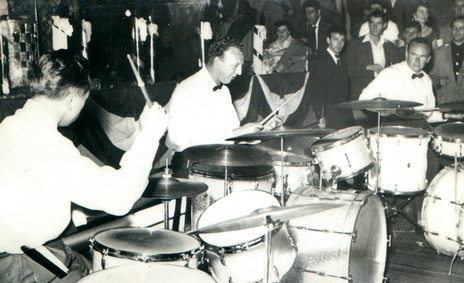
Frank Gibson's drum trio: B. Spence, Frank, Don Branch
Photo credit:
Frank Gibson Jr. Collection
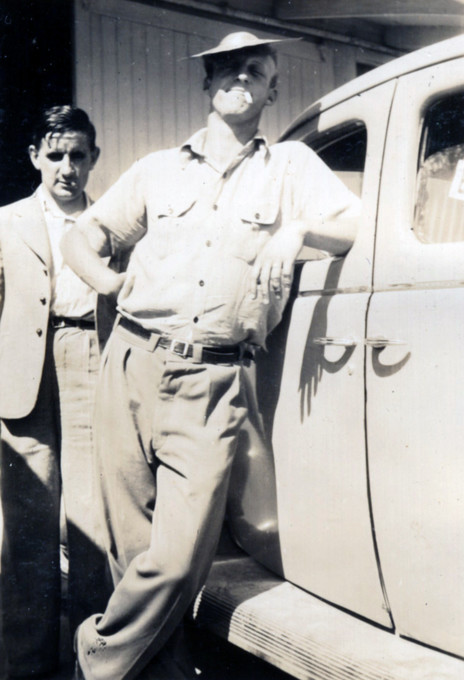
Julian Lee and Frank Gibson Sr, on tour with Epi Shalfoon's Melody Boys, Bay of Plenty, 1947.
Photo credit:
Shalfoon family collection
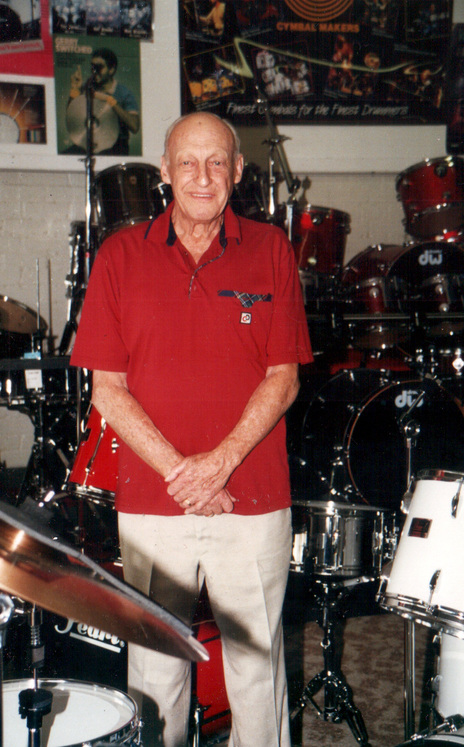
Frank in the 1990s in Drum City
Photo credit:
Frank Gibson Jr. Collection
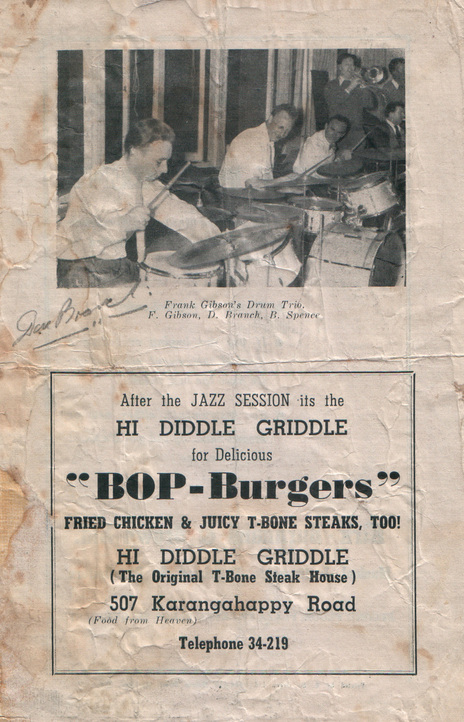
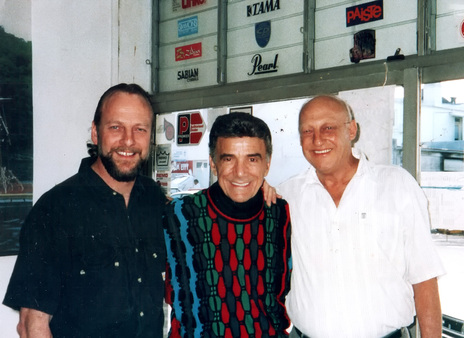
Frank Gibson Jr, American Jazz drummer Louie Bellson, Frank Gibson Sr. at the Balmoral Drum City store
Photo credit:
Frank Gibson Jr. Collection
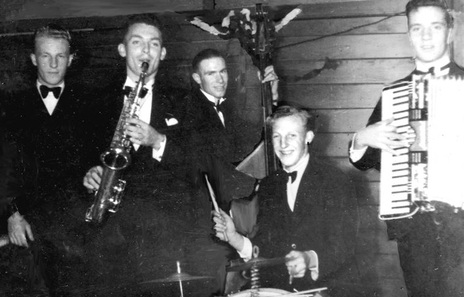
Frank Gibson Sr. with his brother Jim Gibson (far left), Thames, circa 1936
Photo credit:
Graham Gibson Collection
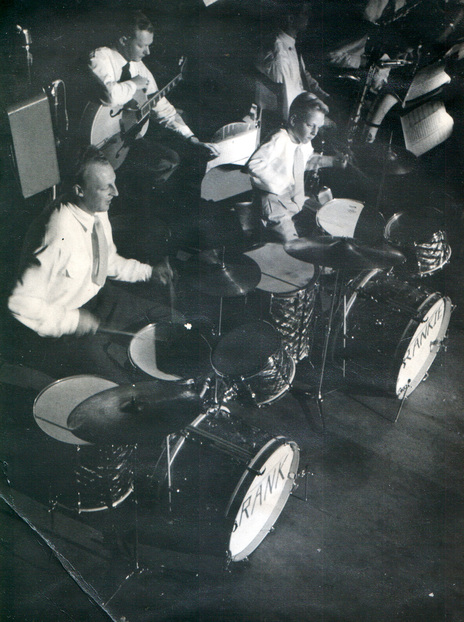
Frank Gibson Sr. and Frank Jr., Auckland Town Hall, 1954
Photo credit:
Frank Gibson Jr. Collection
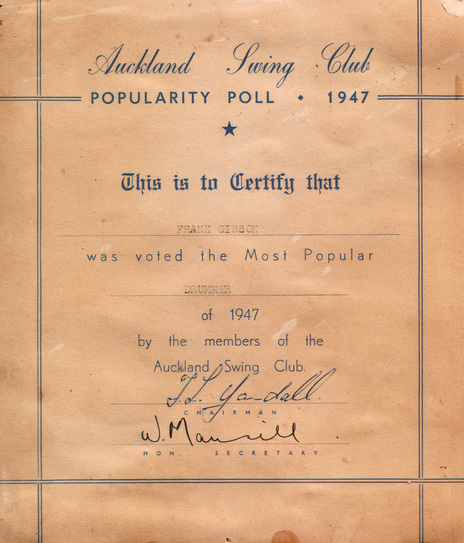
Frank won, 1947, 1948, 1949
Photo credit:
Frank Gibson Jr. Collection
Links:
Trivia:
Frank Gibson kept fastidious records of all his gigs in the 1940s, with details of pay and notes about each show. These still exist in his son's private collection.